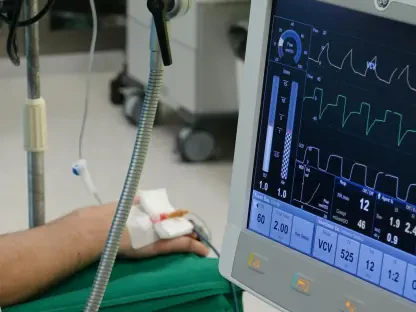In an era where data drives innovation in health care, a groundbreaking initiative has emerged to empower researchers with the tools and funding needed to tackle some of the most pressing challenges in the field, and Rutgers Health, through the Rutgers Institute for Health, Health Care Policy and Aging Research (IFH), has unveiled a pioneering effort to support data-driven studies. This program not only provides financial backing but also opens access to an extensive repository of health data, fostering an environment where interdisciplinary collaboration can thrive. By focusing on real-world problems, from hospital compliance to maternal health disparities, this initiative stands as a beacon of progress for researchers aiming to make a tangible impact on society. The announcement of the first recipients of this funding marks a significant milestone, highlighting the potential for transformative research in the health sector.
Unveiling a New Era of Health Research
Empowering Innovation Through Funding and Data Access
The newly launched pilot grant program by IFH is a game-changer for health research at Rutgers Health, offering up to $35,000 over a 12-month period to selected research teams. This financial support is paired with access to the IFH Data Core, a sophisticated shared resource facility that adheres to stringent National Institutes of Health standards. Researchers can tap into a vast array of datasets, including local, state, national, and international health care records from sources like the Centers for Medicare and Medicaid Services and the Clinical Practice Research Datalink. Beyond mere data provision, the Data Core equips teams with analytical services for managing large health care claims datasets, secure data storage, and a HIPAA-compliant computing environment. This comprehensive support system is designed to enable researchers to conduct high-impact studies that address critical gaps in health care delivery and policy, setting a new standard for data-driven inquiry.
Bridging Disciplines for Broader Impact
A standout feature of this initiative is its emphasis on fostering interdisciplinary collaboration across various fields of health care and policy. The program encourages researchers from diverse backgrounds to work together, leveraging their unique perspectives to address multifaceted health challenges. The IFH Data Core serves as a unifying platform, offering consultation on study design, data acquisition, and grant development to ensure projects are both feasible and impactful. By facilitating such cross-disciplinary efforts, the program aims to produce insights that are not only academically rigorous but also practically applicable to real-world health issues. This approach underscores a commitment to holistic solutions, where data serves as the foundation for innovation across specialties, ultimately aiming to improve patient outcomes and inform systemic change in health care practices.
Spotlight on Pioneering Projects and Future Potential
Diverse Research Teams Tackle Critical Health Issues
The inaugural recipients of the pilot grants represent a wide spectrum of health research, showcasing the program’s versatility and reach. Among the four selected teams, Hilal Atasoy and Brad Nathan from Rutgers Business School are delving into hospital compliance by linking RAC audit records with Medicare claims to assess policy implications. Meanwhile, Login George from IFH and Rutgers School of Nursing explores how oncologists’ emotional competencies influence end-of-life cancer therapy decisions, a deeply human aspect of medical care. These projects, along with others, highlight the breadth of focus areas supported by the grants. From systemic accountability to individual patient interactions, the diversity in research topics ensures that multiple dimensions of health care are addressed, reflecting a strategic approach to solving complex problems through targeted, data-intensive studies.
Addressing Disparities and Diagnostics for Better Outcomes
Continuing the exploration of the awarded projects, Missak Haigentz from Rutgers Cancer Institute and RWJBarnabas Health is conducting a retrospective evaluation of suspicious neoplastic lesions identified during coronary artery calcium score imaging, aiming to enhance diagnostic precision. Simultaneously, Mobolaji Ibitoye from Rutgers School of Public Health investigates maternal outcomes and severe morbidity among U.S.-born and foreign-born Black women in New Jersey, shedding light on critical disparities in maternal health. These studies underscore the program’s dedication to leveraging data for actionable insights in both clinical and societal contexts. By supporting such varied research, the initiative not only tackles immediate health concerns but also lays the groundwork for long-term policy improvements, ensuring that data-driven findings translate into meaningful advancements in care and equity across populations.
Building a Legacy of Data-Driven Health Solutions
Reflecting on the strides made through this initiative, the pilot grant program at Rutgers Health marks a pivotal moment in the journey toward evidence-based health research. The strategic integration of financial support with access to the IFH Data Core’s robust resources empowers teams to delve into pressing issues with unprecedented depth. Looking ahead, the success of these initial projects paves the way for expanded funding opportunities and broader data access, potentially influencing health policies on a national scale. Stakeholders and researchers alike are encouraged to build on this foundation, exploring innovative ways to harness data for improved health outcomes. As the program evolves, continuous collaboration and investment in such initiatives will be crucial to sustaining momentum, ensuring that data remains a powerful tool for transforming health care practices and addressing systemic challenges effectively.









